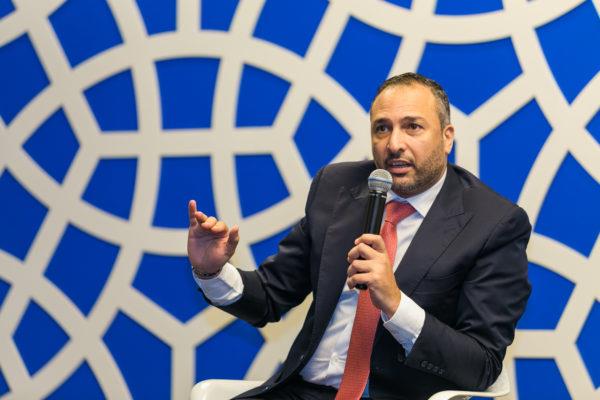(MENAFN- Brazil-Arab News Agency (ANBA))

São Paulo – The Arab countries are major consumers of made-in-Brazil foods, whose exports could grow further, thus providing opportunities for Brazilian micro- and small-sized enterprises. Tourism, agricultural technology, and infrastructure are some of the sectors where there're opportunities, said Arab-Brazilian Chamber of Commerce (ABCC) CEO Tamer Mansour (pictured). On Wednesday (9), Mansour spoke on these opportunities at Sebrae Global Experience 2023, an event held by Sebrae, which promotes the competitiveness of small businesses.
In the panel“Business Opportunities in South America and the Middle East,” Mansour said the trade relations between Brazil and the Arab countries have grown consistently in the past 20 years. However, he pointed out, there many untapped sectors and business.“The United Arab Emirates and Bahrain are two small countries, yet they buy Brazilian goods to benefit and then reexport to other nations. And in that way Brazil ends up accessing markets it doesn't easily reach like Pakistan and Afghanistan,” he exemplified.
Mansour also said that mutual interest has grown and that Brazil has drawn funds from Arab countries.“Investments have changed from trade to funds allocated to projects. We have many investments led by the UAE, but I see the visit (to Brazil) from the minister of Investments of Saudi Arabia (Khalid Al-Falih) last week as a major sign that Saudi public funds want to invest here. That's why medium- and small-sized enterprises, cooperatives, companies out of hubs of Rio Grande do Sul, Santa Catarina and São Paulo have to be on the radar,” he said.
Mansour explained that buyers from the Arab countries like to know the businessperson, the company that'll be their supplier, its credibility and financial health. Speaking English is also crucial to establish good relations that tend to be long-lasting and based on trust.“I see the investment opportunities in the Arab world as a major cycle that is starting this year and will boom over the next ten years,” said Mansour.
Mansour also presented the ABCC in his presentation. The institution has international offices in Dubai, UAE, and Cairo, Egypt, and will soon open an office in Riyadh, Saudi Arabia. In Brazil, in addition to the headquarters in São Paulo, the institution has offices in Itajaí, Santa Catarina, and capital Brasília.
He said the institution works in other projects to streamline the entry process of Brazilian goods into the Arab countries through the blockchain platform Ellos and establishing a direct freight sea lane between Brazil and the Arab countries. A shipment from Port of Santos now takes an average of 28 days to get to Alexandria, Egypt, 35 days to reach the UAE, and 45 days to arrive in Jordan. The latter is now using the fully digitized system of Ellos to clear Brazilian goods.
South America
The panel featured the presentation of opportunities in South America, too. The COO of the Colombia office of the Brazilian Trade and Investment Promotion Agency (ApexBrasil), Marcello Martins, spoke on the opportunities in South Americans countries, particularly Colombia, Chile, Uruguay, and Paraguay. The panel was moderated by Brazilian Council for Import and Export Companies (CECIEx) board member Maurício Manfré.
Translation by Guilherme Miranda
Rodrigo Rodrigues/Arab-Brazilian Chamber
The post arab countries: opportunities for micro, small enterprises appeared first on agência de notícias brasil-árabe .

.jpg)



















Comments
No comment